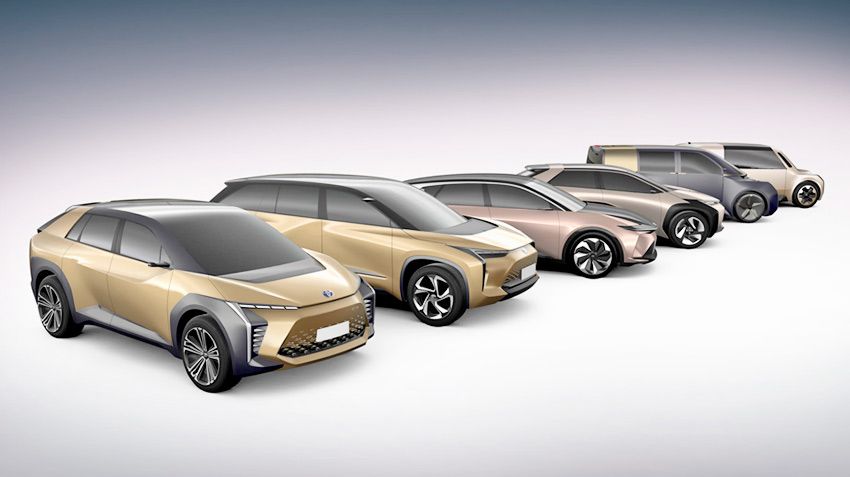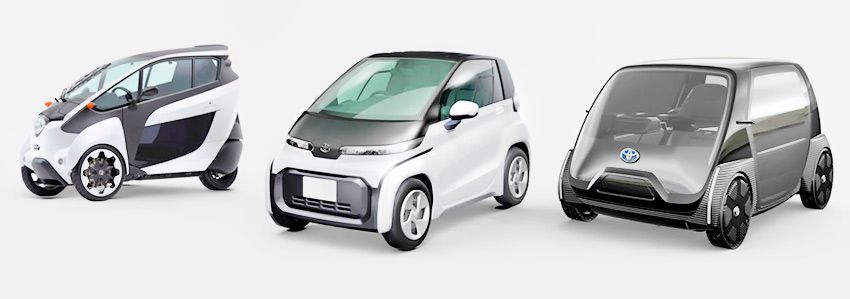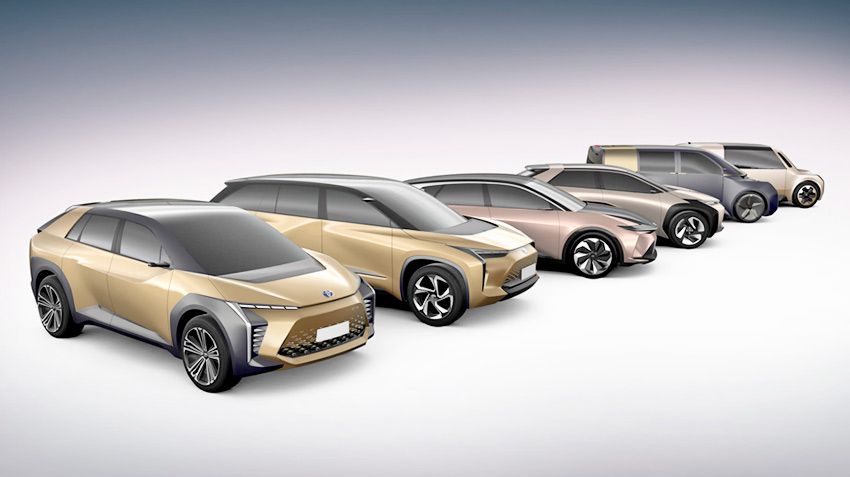Toyota mobility boost from the Summer Olympics in 2020

11 June 2019
Toyota will show the first production electric vehicles and solid battery under the Olympic games in Tokyo
Toyota is famous with the release of the first hybrids (model and later model Prius) will announce accelerated plans to deploy a release of battery electric vehicles, intending to enter the annual sales of 5.5 million cars with electric drive in just five years (by 2025), including due to market by the summer of next year solid-state batteries, because this battery should produce a "sudden surge" in the popularity of electric vehicles.
Actually in the current Toyota plans on selling about 5.5 million EV includes not only pure electric vehicles (BEV), but traditional gasoline-electric hybrids (HEV) and plug-in hybrids (PHEV) and electric cars with hydrogen fuel cells (FCEV). The share of the BEV of them will have almost 1 million.
Executive Vice President Shigeki Terashi, head of research and development Toyota last week at a briefing about the company's plans in the field of electric vehicles has presented a new roadmap of the largest automaker. It should be recalled that in December 2017, the Japanese stated that they will be able to sell such number of EV no earlier than 2030, i.e. now the revised forecast reduced the period of five years.
Mr. Teresi added that the company intends to provide solid state battery for electrified vehicles in the next year in anticipation of the Summer Olympics in Tokyo. New proprietary technology that promises lighter, more powerful and safe batteries, can become a breakthrough in the popularization of electric vehicles.
Shigeki Terashi said, "a desire to exert effort is not enough. Do you need to be able to create the necessary technology".
He added: "If possible, the time when we have next year Olympic games begin, we would like to be sure that the solid-state battery can be presented to the public".
Commenting on the accelerating enterprise programme electromobility Terasi referred to the "sudden surge" in the popularity of electric vehicles.
Mr. Terachi said: "Progress has exceeded expectations. We have entered a new era".
Authorities regulate emissions
Toyota is stepping up its development plans for electric cars, partly in response to increasingly stringent requirements for emissions in China and Europe. It plans to start production of electric vehicles in China next year and start to the beginning of 2020-ies around the world range from at least 10 models BEV.
Today Toyota produces batteries for HEV and PHEV, said it will cooperate for the procurement of batteries with the electrical company China Modern Amperex Technology Co. and manufacturer of electric vehicles BYD Co.
Also Toyota will not abandon the hybrid technology under the Prius sub-brand. It also intends to create by 2025, electrified version of the brands Toyota and Lexus.

Now the green light to get exactly the electric cars. Under the new plan, Toyota plans to introduce in 2020, the ultra-compact two-seater for the Japanese market. Its power reserve is only 100 kilometers (62 miles).
He also is preparing a new specialized technology platform for EV developed jointly with partners.
It's called e-TNGA and is based on a modular platform of the new generation of the Toyota New Global Architecture, is replaced produced in recent years, the platform of the previous generation. Electric cars were the result of the development of EV C. A. Spirit Corp. – a consortium of nine companies led by Toyota, for the development and exchange of components for electric vehicles. Other participants include Subaru, Mazda, Suzuki and Daihatsu.
Joint development with Subaru
Earlier this week, Toyota said it had agreed with Subaru on joint development of all-electric platform for models of medium and large dimension, as well as the joint development of electric crossover.
According to the representative of Toyota, these vehicles will be sold separately under their own sub-brands, debuting in early 2020-ies, when the United States will be the main target market of Japanese cars.
Terasi also said that Toyota is developing a compact electric vehicle in conjunction with Suzuki.
The new platform will turn into six types of cars – large, midsize and compact crossovers, mid-size and compact minivans and mid-size sedan.

Toyota showed to the public a whole range of concepts with six types of body, with a distinctive design EV, is made of clay. The vehicle is distinguished by a long wheelbase, slit-like headlights and video cameras instead of rear view mirrors. The radiator grille is fixed and the hood was typical of exposed form.
ZEV Factory
To better focus on the development of electric vehicles, in November last year, Toyota created the so-called ZEV Toyota Factory. It's own division of the company for the development and launch of EV, which employs 290 people and uses technology developed by a consortium of EV C. A. Spirit Corp. and adapting them to the Toyota brand.
Mr. Teresi also also spoke in the spirit that it may take a long time before electric cars will be profitable without state subsidies. According to him, a more rapid path to profitability will be the adoption of new business models.
The idea is to not just to produce and sell electric vehicles, but also to work with partners in related fields, to gain income during the whole lifetime of the product. These areas include sales, leasing, car sharing, additional services, selling used cars, the recycling of batteries and processing.
Terashi said, "as soon As the technology becomes viable, then the business BEV will be viable, even if the price of batteries will remain relatively high," stressing that the new approach is crucial: "If we don't work on this direction most rapidly, we cannot ensure our future survival"..
|
|
|
Element was not found.








